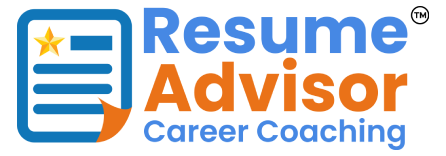
In today’s competitive job market, employers are not only looking for technical expertise and experience but also for specific traits that demonstrate reliability and precision. Employers highly seek candidates who are detail oriented. This phrase appears frequently in job postings, resumes, and interviews, yet many professionals struggle to define it clearly or show evidence of this skill in practice.
At Resume Advisor, Jonathan and his team work directly with clients to ensure they know how to present themselves as professionals. From resume writing and LinkedIn optimization to interview coaching and job search strategy, Resume Advisor equips job seekers with the tools to demonstrate their ability to handle complex tasks with accuracy and thoroughness.
What Does Detail Oriented Mean?
The term refers to an individual’s ability to pay close attention to small aspects of a task while maintaining accuracy and thoroughness. A detail-oriented person reviews contracts, analyzes data, and proofreads documents carefully to ensure nothing is overlooked.
According to the Cambridge Dictionary, it means “giving a lot of attention to small details.” This quality reflects precision, diligence, and the ability to minimize errors.
Why it Matters in the Workplace
Employers value detail-oriented candidates because the modern workplace demands accuracy, efficiency, and consistency. This trait is especially critical in fields such as law, healthcare, engineering, finance, and project management.
Key benefits includes:
- Reducing Errors: Catching mistakes early saves time and resources.
- Enhancing Quality: Delivering work that meets or exceeds standards.
- Building Trust: Supervisors and colleagues rely on dependable work.
- Improving Efficiency: Precise execution prevents rework and delays.
- Supporting Teamwork: Clear, accurate contributions strengthen group performance.
Presenting yourself as this can strengthen both your resume and interview answers.
Synonyms for Detail Oriented
Sometimes, saying you are ‘detail oriented’ sounds repetitive or generic. Synonyms and related phrases can help you vary your language while highlighting the same skill.
Common alternatives include:
- Meticulous
- Precise
- Thorough
- Conscientious
- Attentive
- Analytical
- Accurate
- Rigorous
Using these words effectively can make your resume or cover letter sound more polished and engaging.
How to Demonstrate You Are Detail Oriented
It is not enough to simply list it as a skill. Employers want proof. Here are strategies to show that you are this type of person:
1. On Your Resume
Instead of stating “detail oriented,” use examples that demonstrate it. For example:
- “Reviewed 200+ contracts annually with 100% compliance accuracy.”
- “Managed data entry for financial reports, maintaining error rates under 0.5%.”
2. In Your Cover Letter
Provide a brief story that illustrates attention to detail, such as implementing a process improvement or spotting errors in a critical project.
3. In Interviews
When asked, “How do you ensure accuracy in your work?”, use the STAR method (Situation, Task, Action, Result) to share a specific example.
Measurable achievements are the strongest evidence of being detail oriented.
Resume Advisor: Turning Detail Oriented into a Competitive Edge
Resume Advisor helps job seekers move beyond generic claims and show real examples of being detail oriented. Jonathan works directly with each client to:
- Craft resumes that highlight achievements requiring precision.
- Optimize LinkedIn profiles with keywords and detailed accomplishments.
- Provide interview coaching that prepares clients to answer detail oriented questions with confidence.
- Develop job search strategies that present clients as reliable, capable, and thorough professionals.
By combining personalized guidance with expert knowledge, Resume Advisor ensures that your skills are not just stated—they are proven.
Examples of Detail Oriented Skills by Profession
1. For Accountants
- Reconciling financial statements with zero discrepancies.
- Preparing tax filings with 100% compliance accuracy.
2. For Healthcare Professionals
- Monitoring patient records and ensuring correct dosages.
- Following safety protocols without error.
3. For Project Managers
- Tracking deadlines, budgets, and resource allocation.
- Identifying risks before they become costly issues.
4. For Writers and Editors
- Proofreading documents for grammar and factual accuracy.
- Ensuring consistency in tone, formatting, and style.
These examples show how being detail oriented is not just a soft skill but a measurable, job-critical asset.
Common Interview Questions About Being Detail Oriented
1. “How do you stay detail oriented when managing multiple tasks?”
· Emphasize time management tools and prioritization methods.
2. “Tell me about a time you caught a mistake others missed.”
· Share a concise story with clear impact.
3. “What processes do you use to ensure accuracy?”
· Mention checklists, software tools, or review systems.
Resume Advisor prepares clients with tailored answers to these questions, ensuring they can confidently present their strengths.
How to Improve Your Skills?
Not everyone is naturally detail oriented, but it is a skill you can strengthen:
- Practice mindfulness to focus fully on tasks.
- Create checklists to ensure no steps are missed.
- Use technology for reminders, task management, and error detection.
- Seek feedback to identify areas for greater accuracy.
- Develop patience—rushing often leads to errors.
Employers appreciate candidates who not only claim to be detail oriented but also actively work to improve their precision and accuracy.
Final Thoughts
Being detail oriented is one of the most valuable qualities you can bring to the workplace. It demonstrates that you take pride in your work, reduce errors, and contribute to a culture of excellence. Employers consistently seek professionals who show this skill on resumes, in interviews, and on the job.
With Resume Advisor, job seekers gain the tools to highlight their skills with confidence. Jonathan’s personalized coaching—covering resumes, LinkedIn optimization, interview prep, and end-to-end job search strategies—ensures you can prove your ability to deliver accurate, reliable, and thorough work.
The next time you describe yourself as detail oriented, remember: it is not just a buzzword. It is a powerful trait that, when demonstrated effectively, can set you apart in any industry.

